
How to Treat Ringworm at Home: Dermatologist-Approved Tips for Quick Relief
Introduction
What Is Ringworm and What Cures It?
So, are you looking for how to treat and cure ringworm effectively & quickly?
Signs and Common Locations of Ringworm
The first and most important step to treat or cure a ringworm is:
Counseling : What is the cause of ringworm infection?
How does it evolve?
Precautions and hygiene:
Course completion advice:
Sibling management:
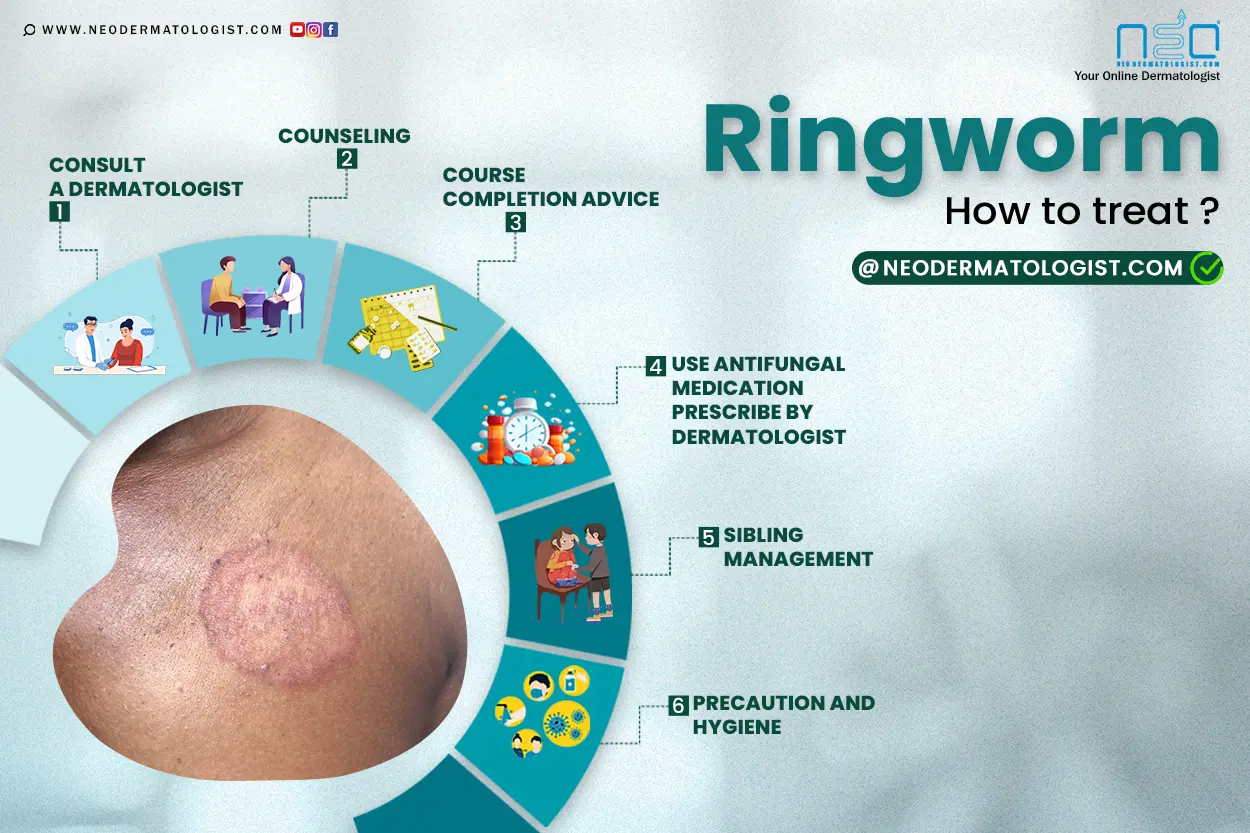
Looking For a Solution For Ringworm Infection? We Can Help
Ringworm Infection Treatment Consultation Steps
1. Consult a Dermatologist Online
Before self-treating, it’s important to consult a certified expert. At Neodermatologist, our online consultations with dermatologists are quick, reliable, and you may even be eligible for a free consultation. According to the American Academy of Dermatology (AAD), dermatologists diagnose ringworm by closely examining the affected skin and, if necessary, performing simple tests to confirm the infection.
2. Start Medication – Oral and Topical
3. Follow Good Hygiene
Case Study: Real Ringworm Treatment Success
Resources and Videos
Want to see how to treat ringworms step by step? Watch our ringworm treatment video here
To Know More About Free Online Dermatology Consultation, Click On The Link - Get a free ringworm consultation with a dermatologist
If you're dealing with other skin or hair concerns, we offer more than just acne solutions. You can explore our specialized services like Online Hair Loss Treatment, Acne Treatment Online, and General Skin Consultation for expert advice from experienced dermatologists.
We also provide targeted treatments for conditions such as fungal jock itch treatment, Eczema, Scabies, Psoriasis, Urticaria (Hives), and Vitiligo. Our online consultation platform makes it easy to access the care you need, right from the comfort of your home.
How To Cure Ringworm Quickly At Home
Irrespective of the severity of ringworm infections, they can be managed at home under guidance from an online dermatologist. Using prescribed oral medicines and topical medicated creams, along with maintaining dryness in the affected areas, can help stop the spread and promote faster healing. While some fungal infection home remedies may provide relief, they should not be solely relied upon - consulting a dermatologist is essential for proper diagnosis and treatment. Do not stop medication even if the infection looks healed - that’s the key to preventing recurrence.
If you’re struggling with chronic or recurring ringworm, SkinMate – Our AI Dermatology Nurse, can help take your case history and book you an online consultation instantly.
Struggling with ringworm or other skin concerns? Consult a dermatologist instantly on WhatsApp with SkinMate, your AI-Powered Dermatology Nurse.
Still, Have Questions or Need Personalized Help?
If you are wondering how to treat or cure ringworm quickly and effectively? Don’t wait.
Connect with our online dermatology consultation at Neodermatologist for an accurate diagnosis and a complete ringworm infection treatment plan.
1. No clinic visits
2. Expert guidance from home
3. Affordable and private
4. Clear results in weeks
Your skin deserves expert care - get the right treatment, right now.
Read this page in Hindi → दाद को कैसे ठीक करें? भयंकर दाद खाज की दवा और डॉक्टर द्वारा सुझाया इलाज
Thank You.
M.B., D.V.D. | Registration No.: G-41460
A dermatologist specializing in tele-dermatology, offering expert care for skin, hair, and nail concerns. With extensive clinical experience, provides effective treatments for acne, hair fall, eczema, vitiligo, hives, scalp issues, ringworm, fungal infections, and more - all accessible through convenient online consultations.
 Hin
Hin En
En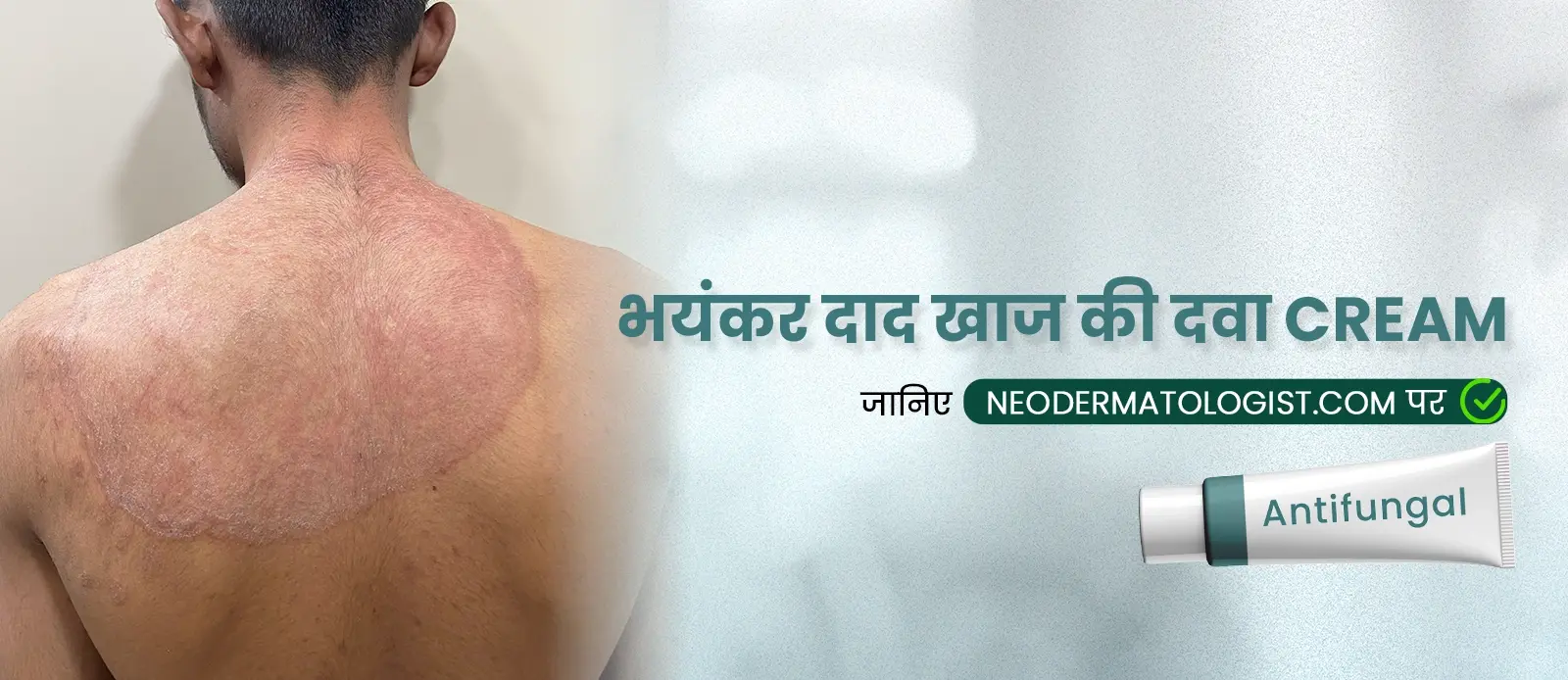
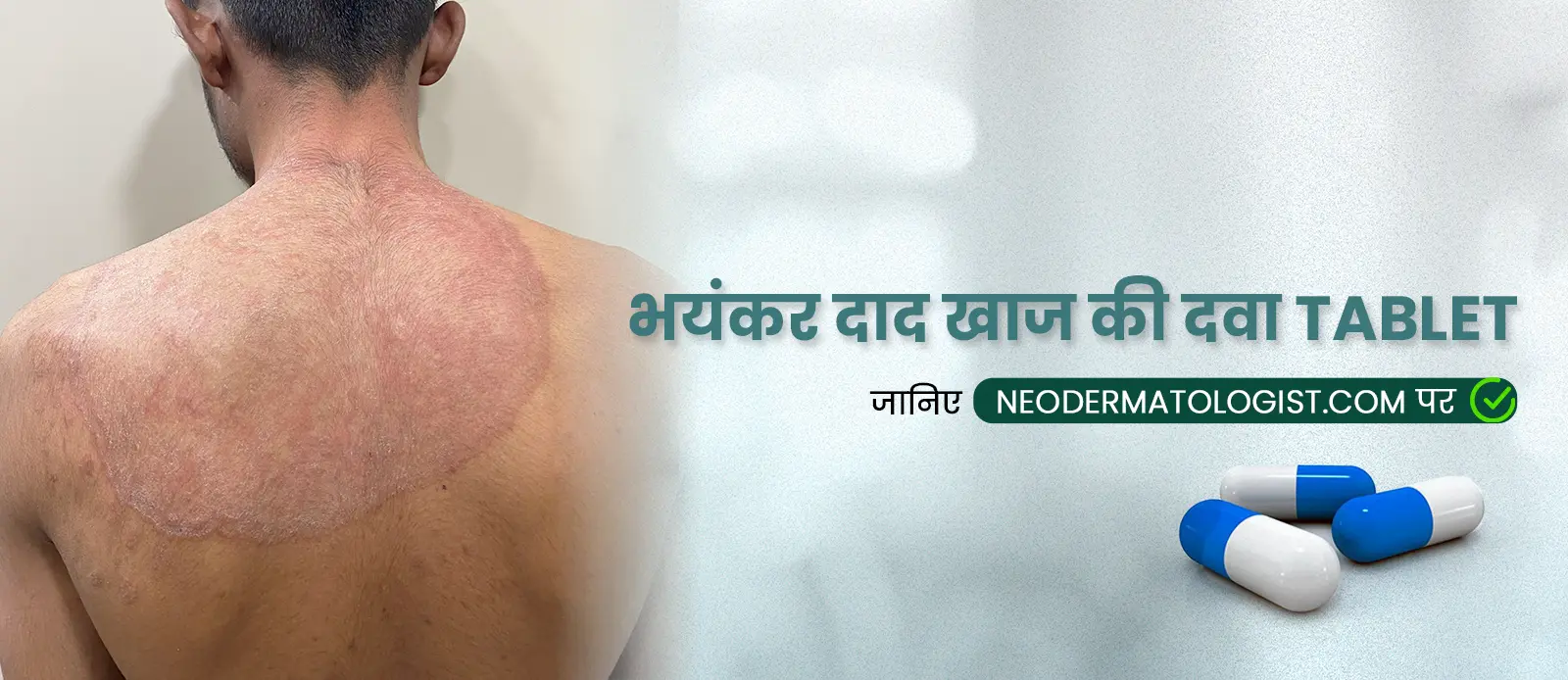
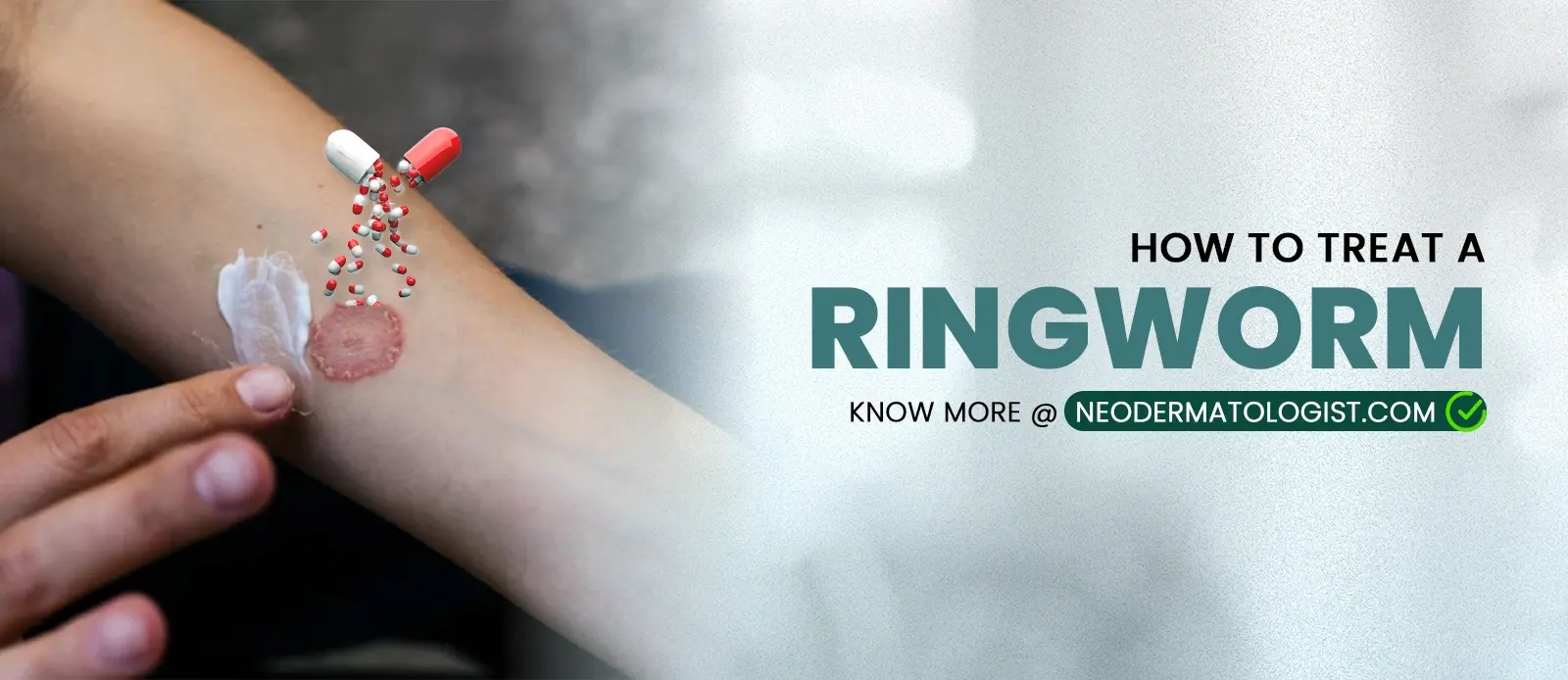

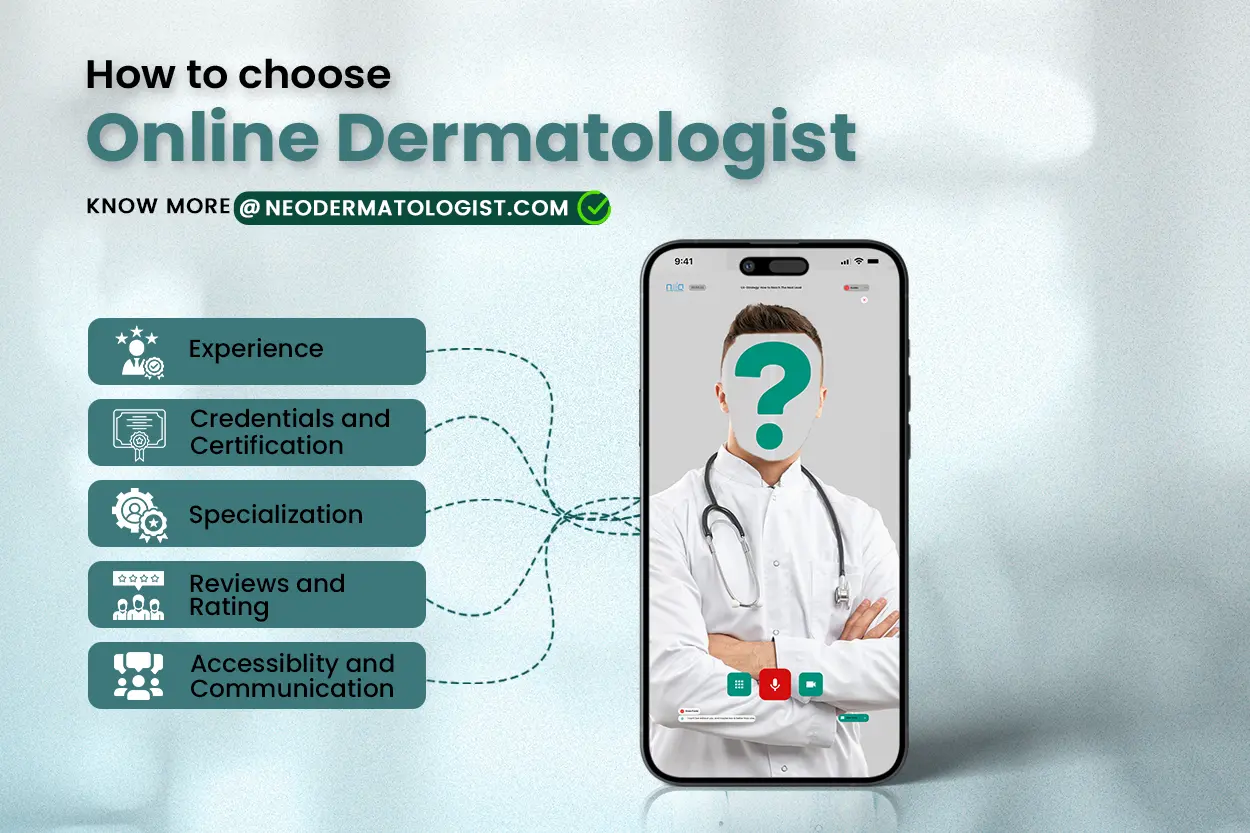
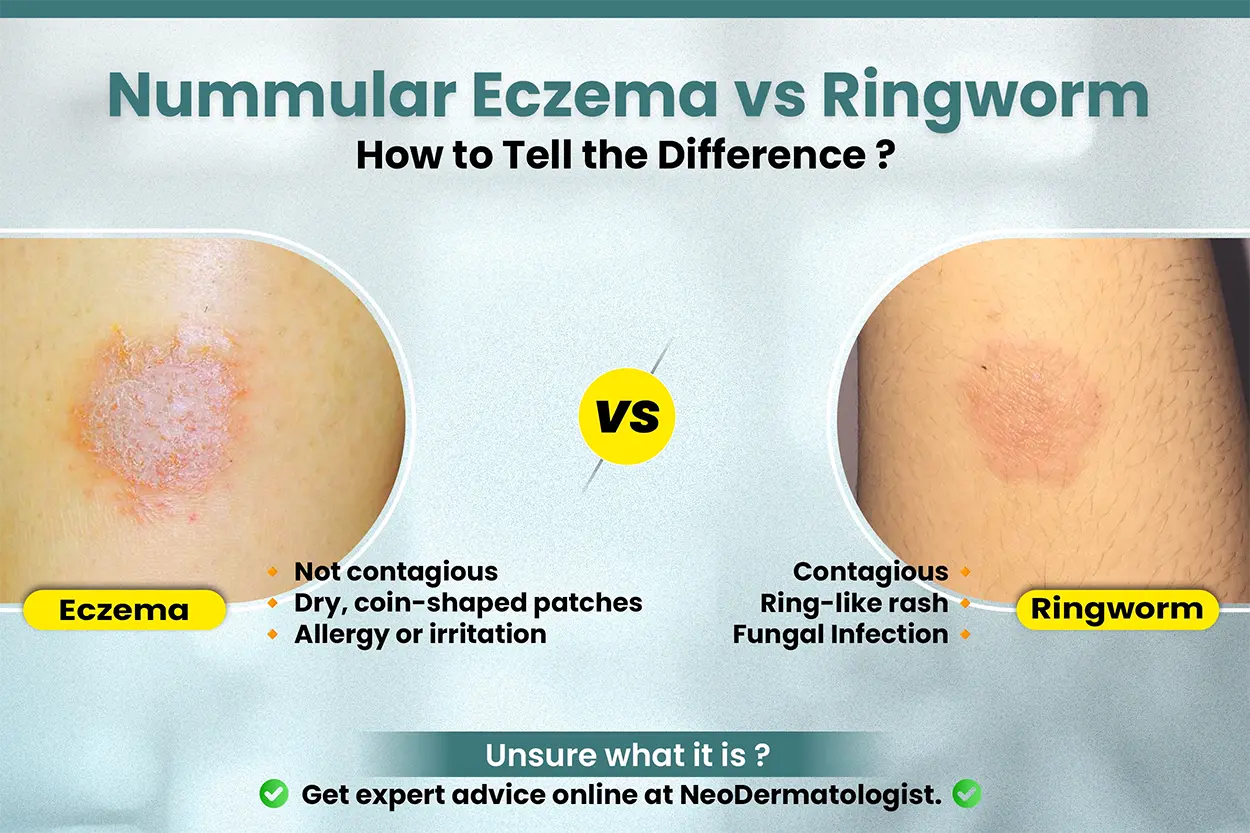
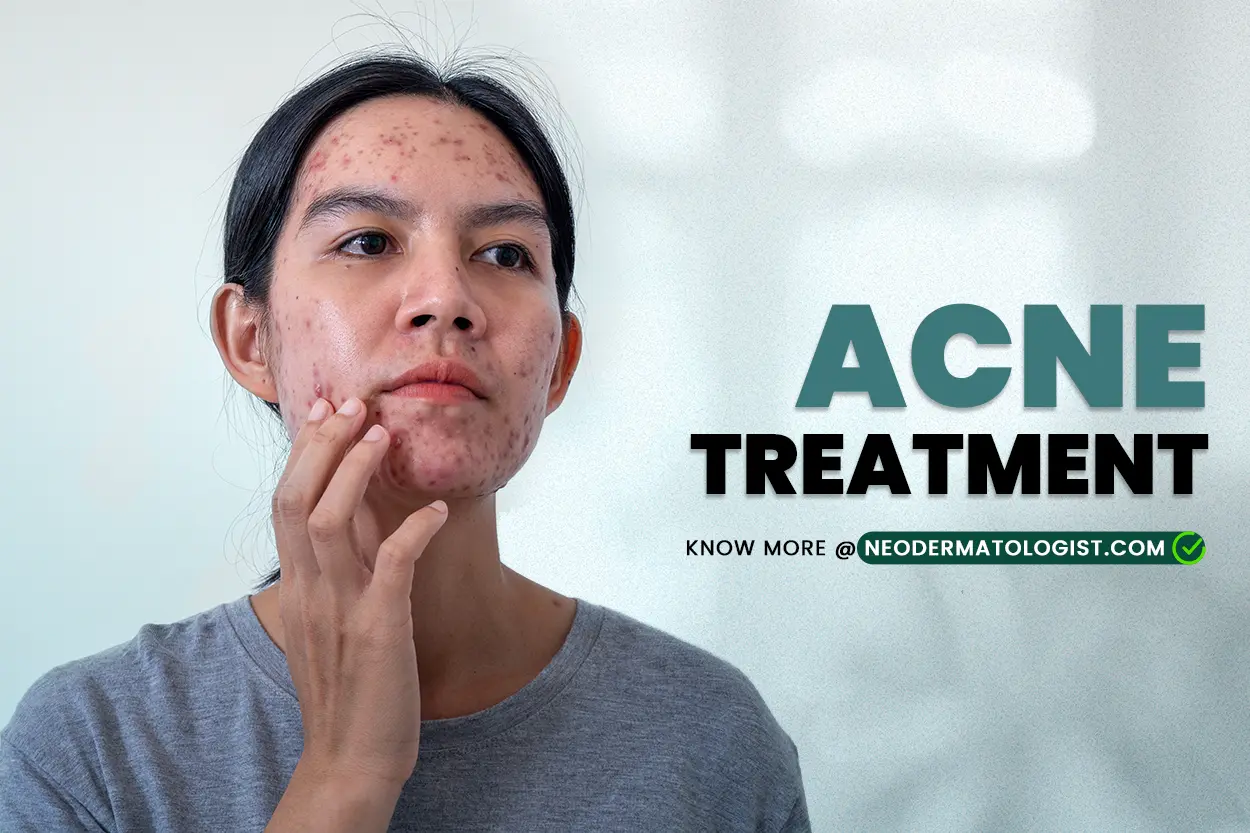















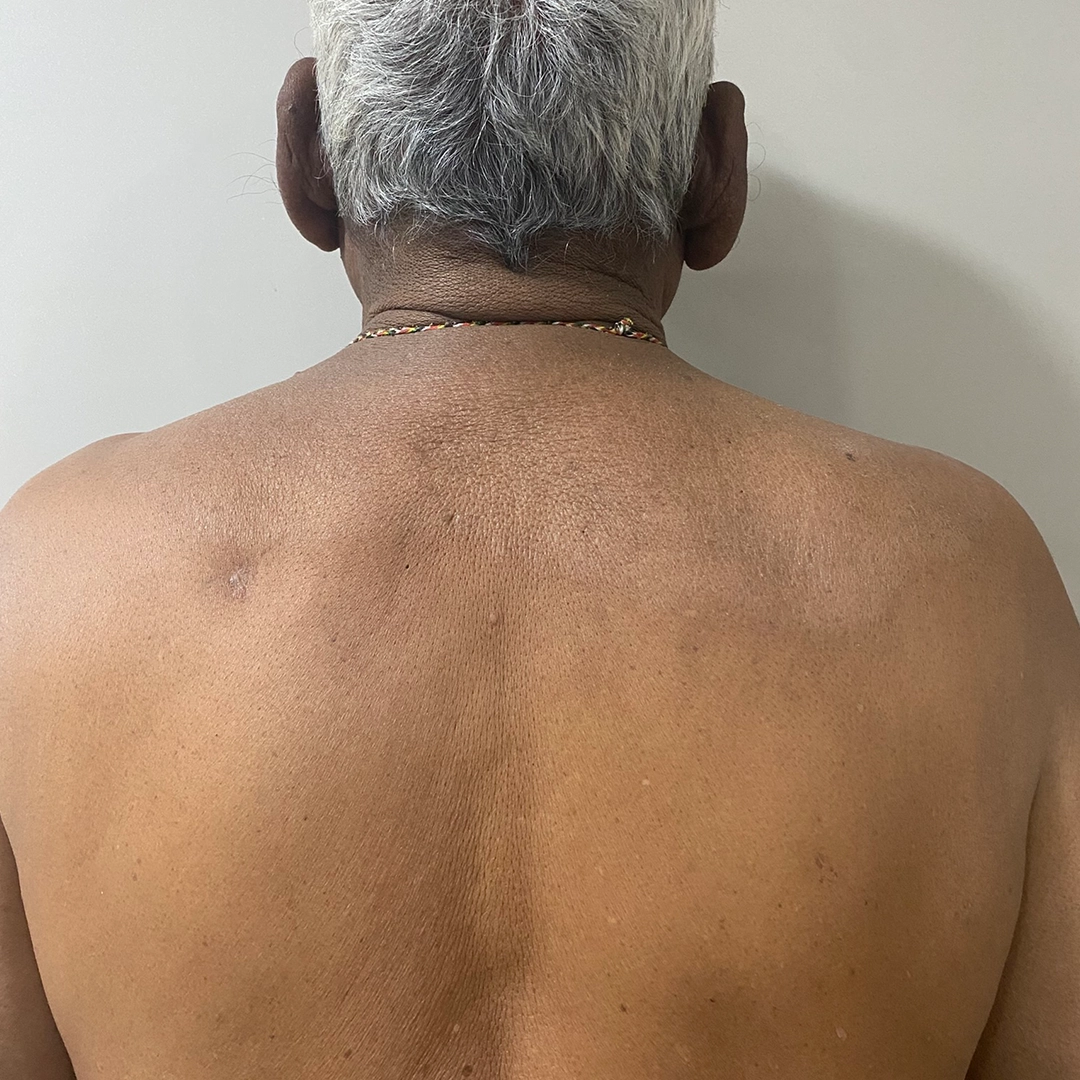
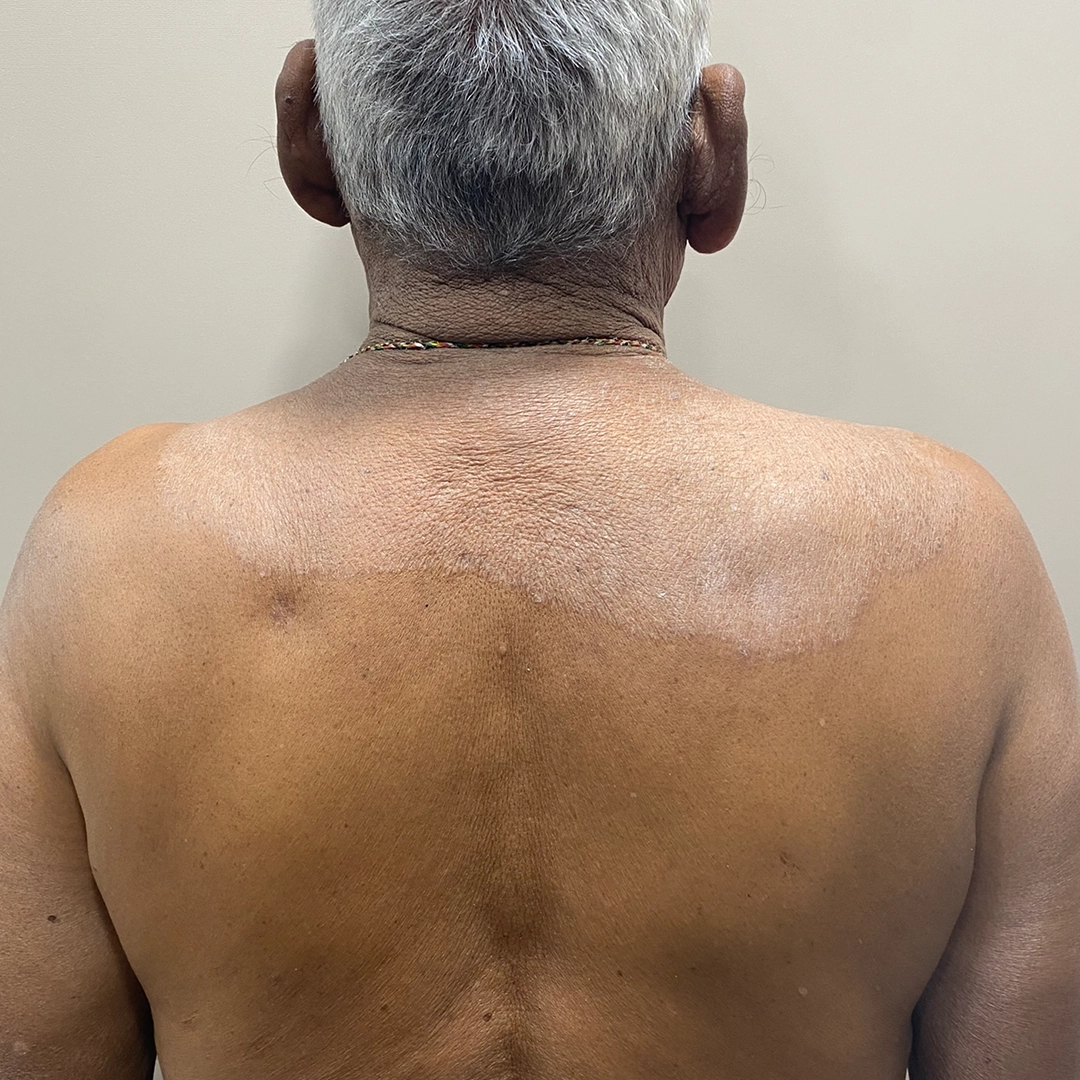
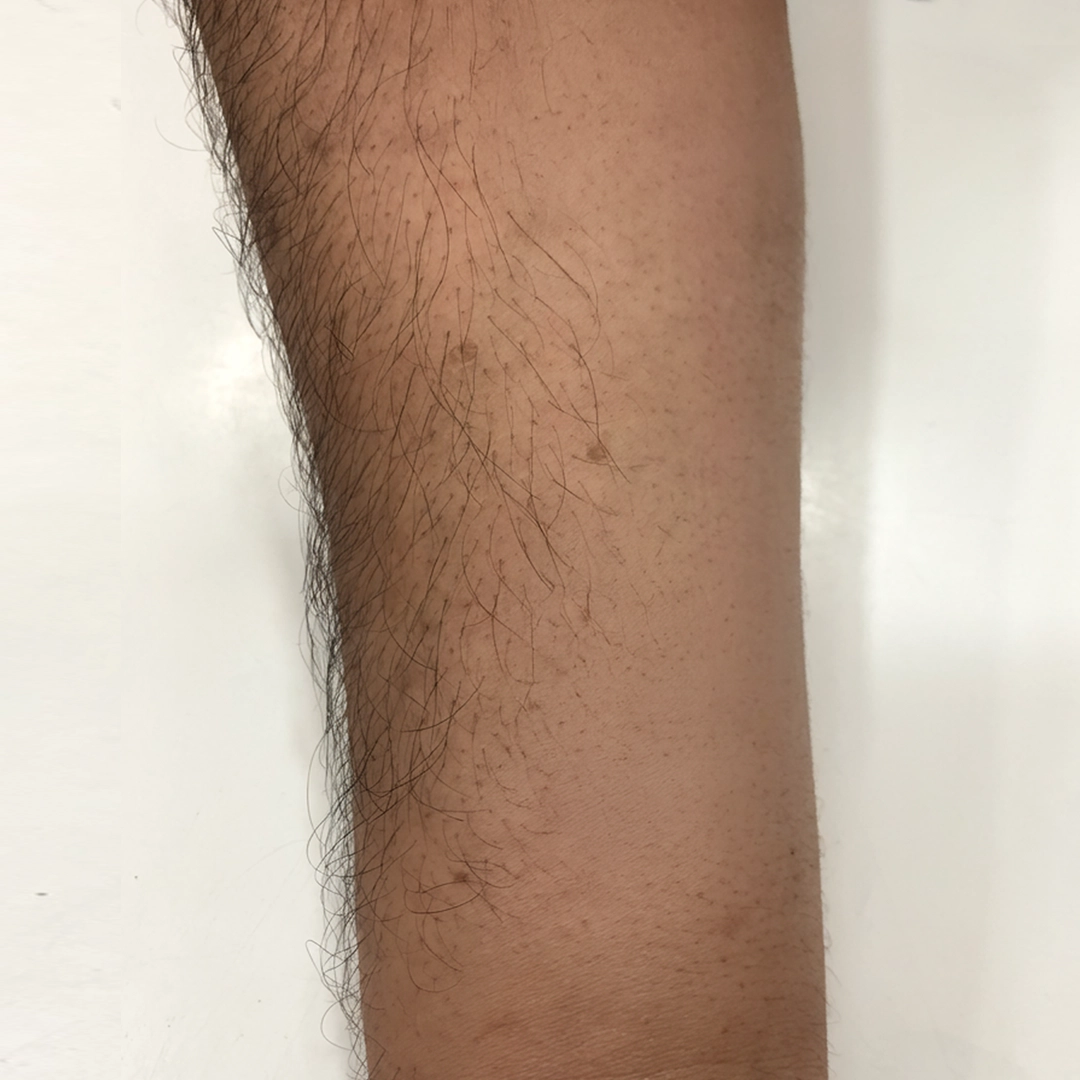
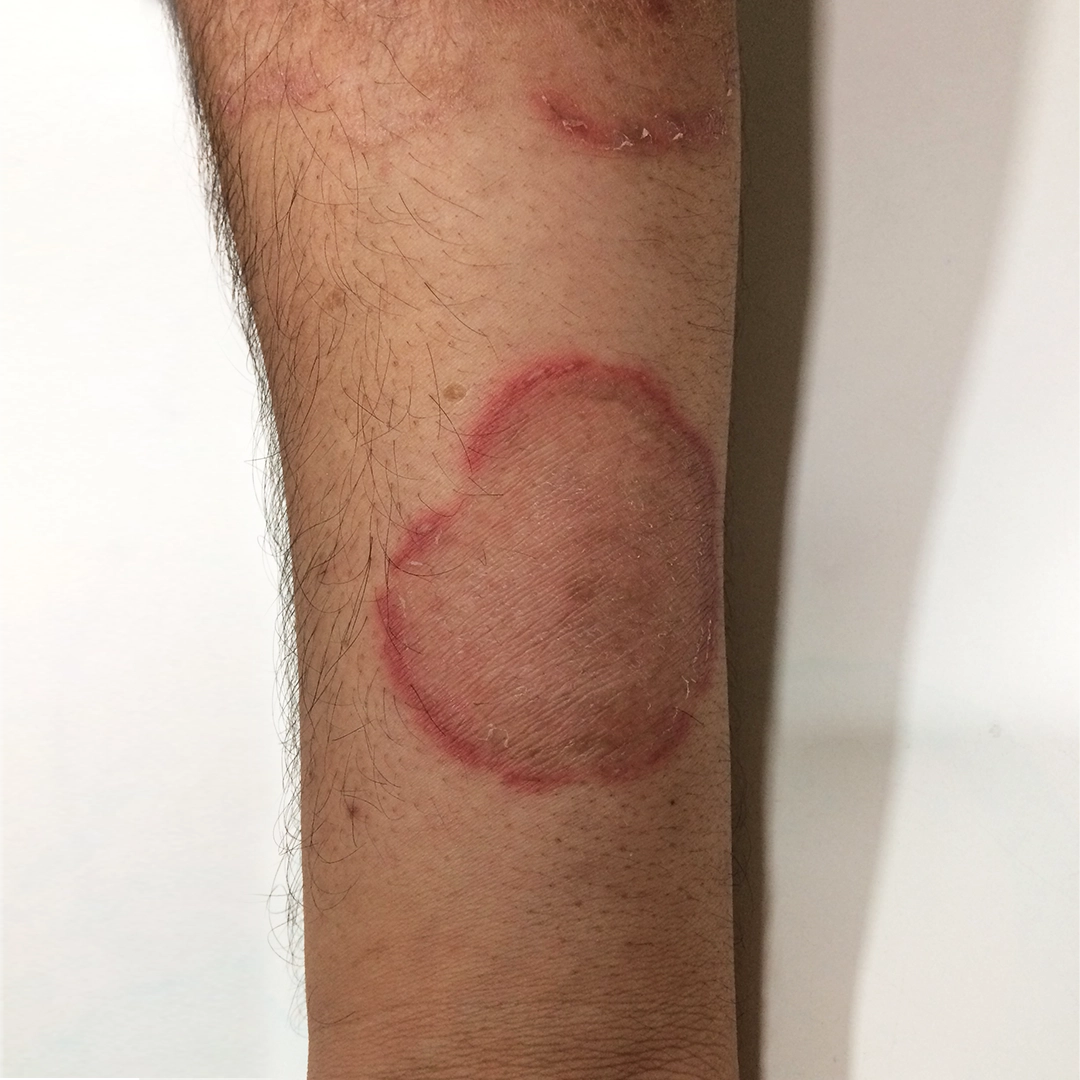
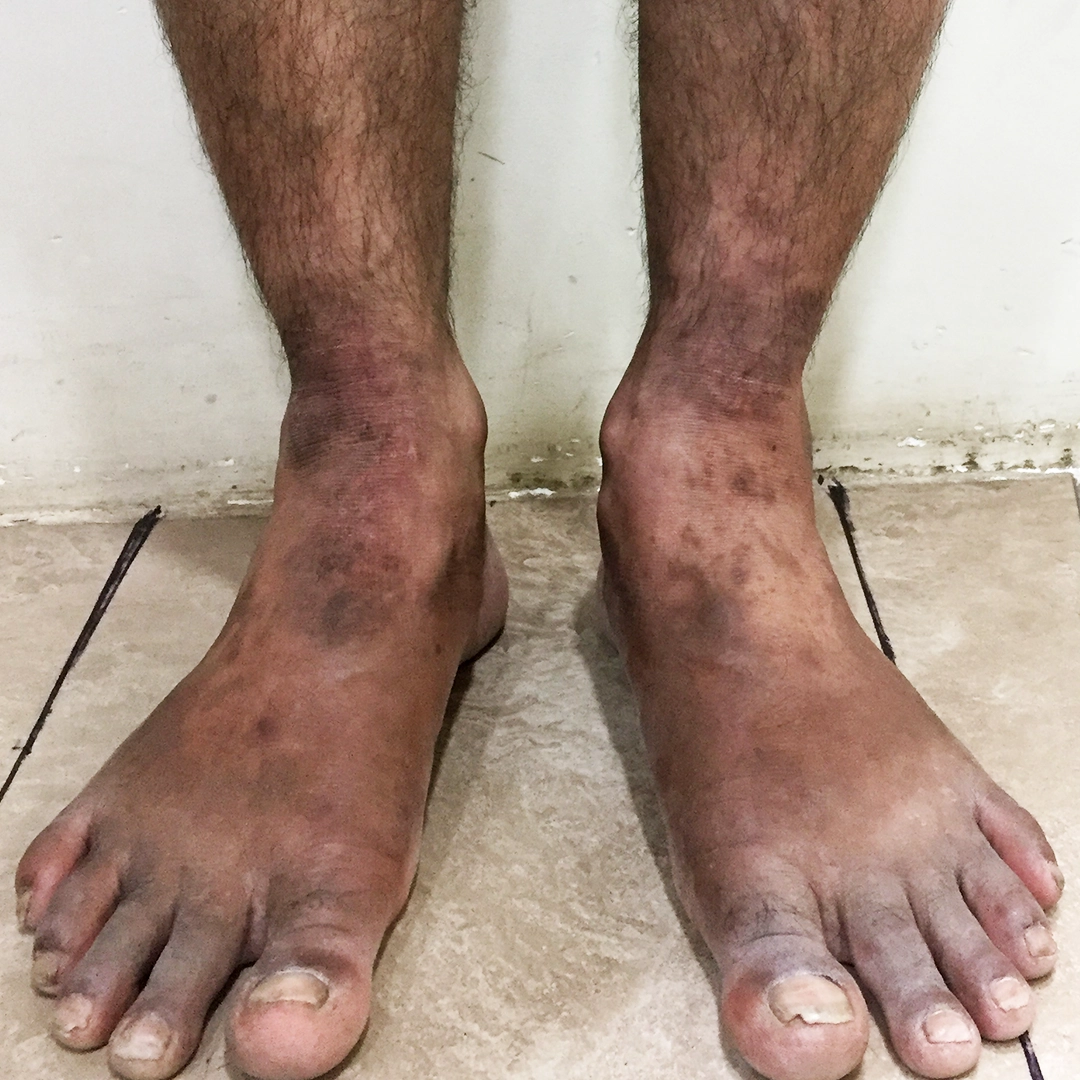
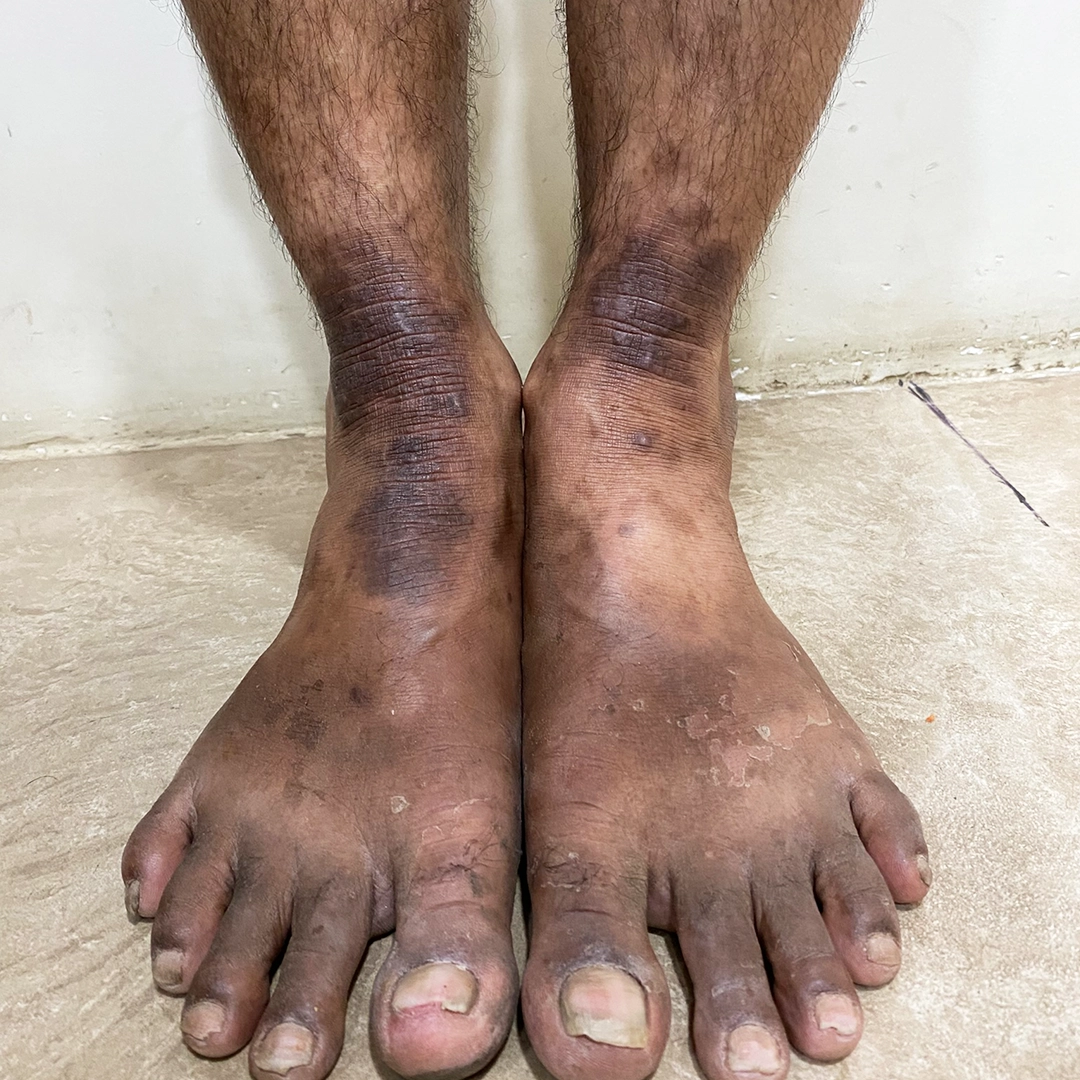

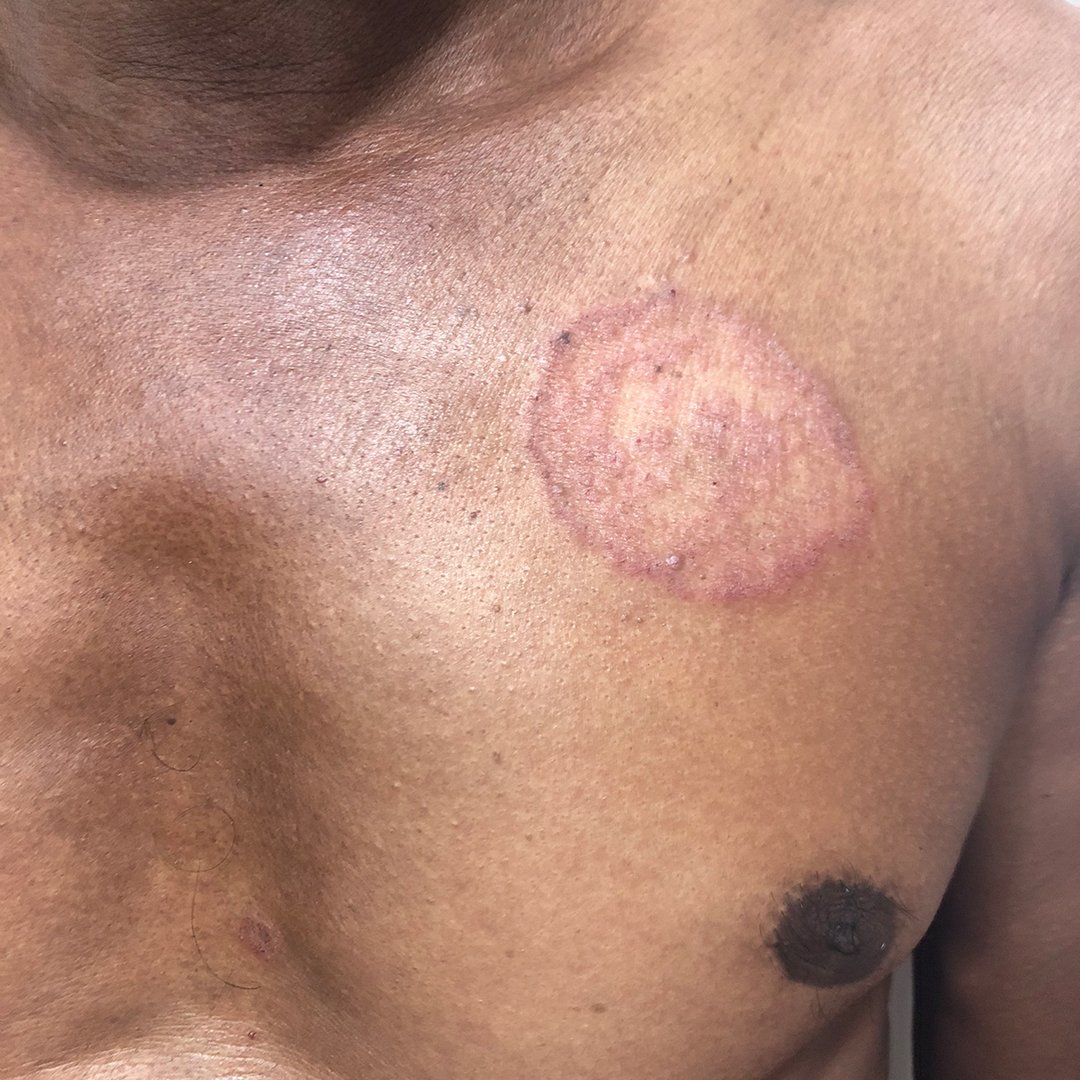




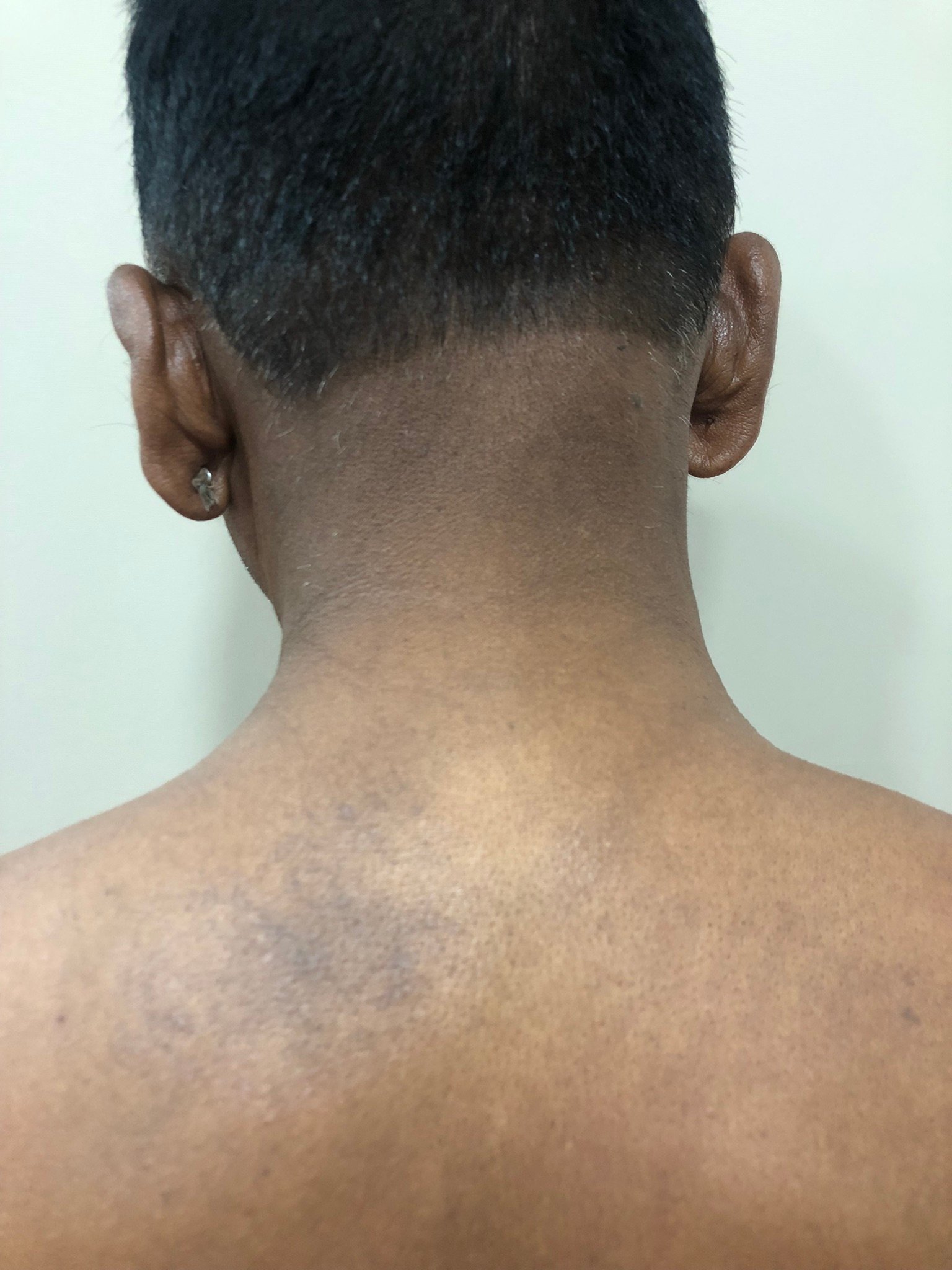
Comments
Akhilesh chandravanshi
Lal daag Dard Jo khujali karti hai
Renu
Bhut tej khuli h aarma nhi hota
Bhargav Dhameliya
Dhadhar ka ilaj Kise kare
dhrumi desai
Very informative blog! Learned how ringworm (fungal infection) spreads and how to treat it with antifungal creams and proper hygiene. Loved the practical tips and the free online skin consultation offer by Neodermatologist.com. Perfect for anyone looking for ringworm treatment at home!
Digma Parmar
मेरे बेटे को पिछले 10 दिनों से दाद की शिकायत है। क्या आप ऑनलाइन सलाह दे सकते हैं? आपकी वेबसाइट पर डॉक्टर से कैसे संपर्क करें?
Jinal Limbachiya
This blog has helped me enhance my knowledge for ringworm and its treatment. I would like to thank the team of doctors.
Post a comment